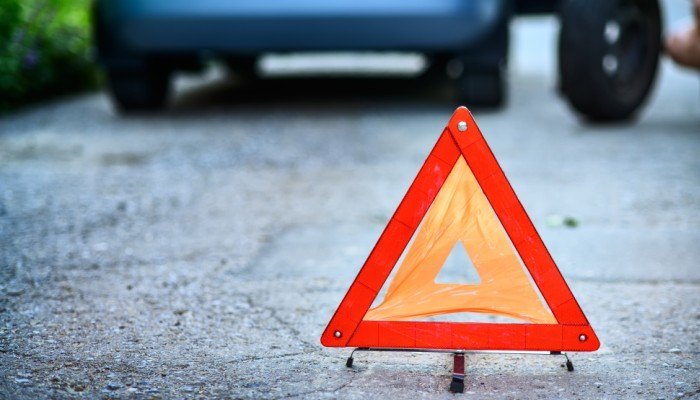
Ah, the joys of car ownership. You’re driving through the countryside with the wind in your hair, when the impossible happens: your car comes to an ignominious halt. It’s stopped when you want it to go. You clamber out of your formerly trustworthy vehicle, open the bonnet and gape in awe at all that stuff. Your car suddenly becomes the most enigmatic contraption of all time: you realise you know nothing about automobiles whatsoever.
Kicking the wing won’t help. How could your 1998 Ford Fiesta do this to you? It’s hardly got any rust on it at all. But don’t panic. It’s time to call your breakdown cover provider. Oh wait, you didn’t forget to … did you?
But just as with the human body, cars give you signs that trouble is ahead. Usually.
Here are some warning signs you may have missed. Mull them over as you admire the horticultural merits of the grassy bank next to the M1.
To do with your alternator
We won’t bore you with the details, but your alternator recycles electricity that your battery uses, so you can keep on listening to your favourite music and see other cars in the dark – among other things. Signs your alternator might be about to fail include:
- Dim headlights
- Flashing alternator warning lights (which might read ALT or GEN)
- Strange smells – the aroma of burnt rubber can arise when the belts in your alternator are not turning freely, causing friction.
- Weird noises – if a component in your alternator has worn out, there may well be strange sounds coming from under your bonnet.
To do with your brakes
OK, when your brakes fail, you don’t exactly brake down – but you lose the ability to stop – which makes it impossible to drive your car safely. The most obvious sign that there’s a problem is the appearance of the brake light on your dash, which means it’s taking your car longer to stop than normal. Your brakes may also need attention if:
- You hear a squealing from the braking system – the brake’s way of telling you to go to your garage.
- You hear a harsh grinding sound – this could mean you’ve worn through your brake pads and should already be en-route to your garage.
- You experience ‘pulling’ – whereby the car’s steering seems to have a mind of its own. However, this could be down to a number of other things, such as incorrectly aligned tyres.
- You experience a pulsing pedal – usually means a warped rotor or an out-of-round drum
To do with your spark plugs
Your spark plugs ignite the air and fuel mixture in your cylinders and so are crucial to your car’s operation. Here are some signs they could need replacing:
- Rough, jittery engine when idling – suggests your spark plugs need some TLC
- Trouble starting your car – this could be down to a lack of fuel or a flat battery – but it could also be down to spark plug trouble
- Engine surging – which could be very dangerous in a driving situation. Check your spark plugs
- Misfiring engine – suggests one of your cylinders may not be working, possibly due to a spark plug issue
- Increase fuel consumption – which could be due to incomplete combustions in your engine, related to a spark plug problem
- Poor acceleration – new or cleaned spark plugs may address this
To do with your keys
- You can’t find them. In all seriousness, this is in the top five reasons for not being able to drive your car, constituting a breakdown situation. It’s important to keep a spare set of keys with you at all times.
Choose a good breakdown cover provider
Most breakdown situations can be remedied on the roadside by your vehicle recovery provider. If they can’t be addressed straight away, your breakdown assistance company will help you reach the nearest garage, or your home. The kind of assistance you get and any additional costs will depend on the level of cover you took out – startrescue.co.uk provide a comprehensive range of cover to suit all needs!




